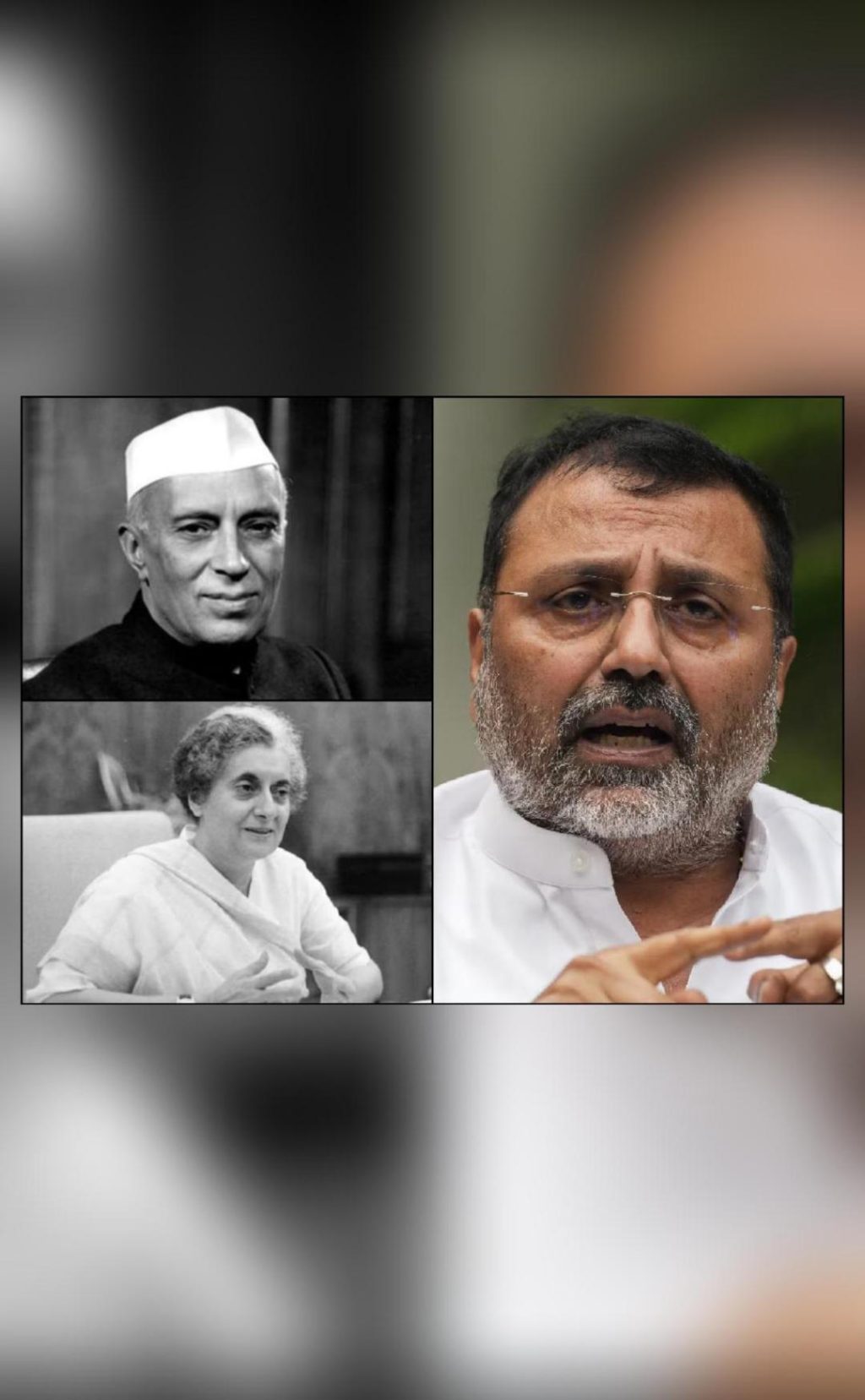
Nehru & Indira drove away Intel from India; it went to China: BJP
The Indian IT sector has been a significant contributor to the country’s economy, with the industry growing at an exponential rate over the past few decades. However, a recent statement by BJP MP Nishikant Dubey has sparked controversy, claiming that the country’s former Prime Ministers, Jawaharlal Nehru and Indira Gandhi, drove away semiconductor companies like Intel and Fairchild from India, leading them to set up shop in China instead.
Dubey made the statement while addressing a gathering of entrepreneurs and industry leaders in Ranchi, Jharkhand. According to reports, he claimed that the absence of a conducive business environment and lack of support from the government during Nehru and Gandhi’s tenure led to the departure of these companies from India.
Intel, one of the world’s largest semiconductor companies, is often credited with playing a significant role in the development of Silicon Valley in the United States. Dubey’s statement suggests that if Intel had stayed in India, the country could have potentially become a hub for the technology industry, with a significant number of jobs being created for Indians.
However, it is important to understand the context in which Intel and Fairchild left India. In the 1960s and 1970s, India was still a developing country, and its economy was heavily protected by regulatory barriers and tariffs. This made it difficult for foreign companies to operate in the country, and many chose to establish themselves in other parts of the world instead.
Intel, in particular, was founded in 1968, and by the early 1970s, the company had set up a research and development facility in Santa Clara, California. The facility was established to develop integrated circuits, which were a new and innovative technology at the time. The company’s success in developing these circuits helped to establish Silicon Valley as a major hub for the technology industry.
Fairchild Semiconductor, another prominent semiconductor company, also left India during this period. Founded in 1957, Fairchild was one of the first companies to develop integrated circuits, and its technology was widely used in the development of computers and other electronic devices.
While it is true that Nehru and Gandhi’s governments did impose strict regulations on foreign companies, including Intel and Fairchild, it is important to note that these regulations were intended to protect India’s fledgling economy and promote the growth of domestic industries.
In recent years, the Indian government has taken steps to attract foreign investment and promote the growth of the technology industry. The country has implemented a range of policies aimed at making it easier for foreign companies to operate in India, including the establishment of special economic zones and the relaxation of regulations related to foreign direct investment.
Despite these efforts, it is unclear whether Dubey’s statement is entirely accurate. While Intel and Fairchild did leave India, it is unclear whether their departure was solely due to the policies of Nehru and Gandhi’s governments.
In a separate tweet, Dubey also claimed that it was because of Intel that Silicon Valley developed in America, where more than half of the jobs are held by Indians. While it is true that many Indian immigrants have made significant contributions to the technology industry in the United States, it is unclear whether Intel’s departure from India was the sole reason for this.
In conclusion, while Nishikant Dubey’s statement has sparked controversy, it is important to understand the complex history of India’s technology industry and the factors that led to the departure of companies like Intel and Fairchild. While it is true that regulatory barriers and tariffs made it difficult for foreign companies to operate in India during Nehru and Gandhi’s tenure, it is unclear whether their departure was solely due to these factors.
Regardless of the accuracy of Dubey’s statement, it is clear that the Indian government has made significant efforts in recent years to promote the growth of the technology industry and attract foreign investment. As the country continues to evolve and grow, it will be important to strike a balance between promoting economic growth and protecting the interests of domestic industries.
News Source:
https://x.com/nishikant_dubey/status/1956538914207883396






